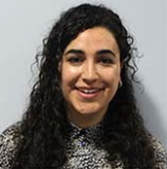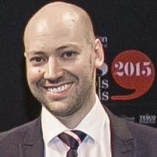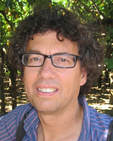On the 26th January 2019 we held the fifth mixed attainment maths conference. This was a conference for primary and secondary school teachers of mathematics who are keen to develop ways of working with mixed-attainment groups. University College London kindly hosted the conference. Workshops were organised by people who are currently teaching, or who have taught mathematics in mixed-attainment classrooms from KS2 to KS4. The intention of the conferences is to share practices through active participation regarding strategies, ideas and resources for teaching in mixed-attainment classrooms.
The aim of those organising the conference is: To help form a community of teachers who share a common belief in social justice and the value of not separating children into groups according to some notion of their (fixed) ‘ability.’
The aim of those organising the conference is: To help form a community of teachers who share a common belief in social justice and the value of not separating children into groups according to some notion of their (fixed) ‘ability.’
'With respect to making accessible the deep structure of any given discipline, I think the rule holds that any subject can be taught to any child at any age in some form that is both honest and powerful. It is a premise that rests on the fact that more complex abstract ideas can in fact be rendered in an intuitive, operational form that comes within reach of any learner to aid him (sic) towards the more abstract idea yet to be mastered.'
Bruner, J. S. (1972), The relevance of education, Trowbridge: Redwood Press Ltd
Bruner, J. S. (1972), The relevance of education, Trowbridge: Redwood Press Ltd
Alison Kiddle & Charlie GilderdaleUsing NRICH in mixed attainment classes Ks2 - Ks4
Many people associate NRICH with challenging tasks suitable only for high attainers. In this workshop we would like to challenge this view by sharing a selection of ‘Low Threshold, High Ceiling' tasks which are ideal for use in Mixed Attainment classes. Alison Kiddle & Charlie Gilderdale are NRICH team members, creating resources for secondary students and teachers.
@ajk_44 @charliegild @nrichmaths Helen Hindle
Ensuring support and challenge for all students in mixed attainment classes Ks2 - Ks4
I often get asked, as a teacher of mixed-attainment mathematics classes, "How do you manage to ensure all students are both challenged and supported?" In this session I will bring examples of strategies and tasks I frequently use to seek to achieve these outcomes. Helen is the Head of the Mathematics Department at Park View in Haringey, London.
@helenhindle1 Michael Ollerton
An eclectic mixture of problems from Y5 to Y9
This workshop begins as soon as the first delegates come into the room. You will be invited to try out a range of exploratory type tasks intended to engage your learners in concepts such as: Place Value, Perimeter, Area Multiplication, Subtraction and Fractions. My plan is to spend the final 15 minutes discussing the implications of the tasks for mixed-attainment classrooms. Michael is a Freelance mathematics education consultant.
@MichaelOllerton Gareth Evans“How do you know?” Taking Understanding to the Next Level
Ks2 - Ks4 In this workshop I will share a selection of my favourite resources and activities for developing fluency, promoting reasoning and taking understanding to the next level. Gareth Evans is Lead Practitioner of Maths at Tarleton Academy, Preston.
@MrE_Maths |
Andrew BlairInquiry maths and mixed attainment classes Ks2 - Ks4
Inquiry Maths is a model of learning mathematics that was devised and developed in mixed attainment classrooms. It encourages students to regulate their own activity while exploring a prompt. An Inquiry Maths lesson starts with students' questions and conjectures and can involve diverse pathways. Inquiry guarantees inclusiveness, cohesion and equity as all contributions add to the findings of the class. Participants at the workshop will experience the excitement, unpredictability and creativity of classroom inquiries. Dr Andrew Blair is the leader of a mathematics department in Camden.
@inquirymaths Laura KatanUsing manipulatives with mixed attainment classes Ks2 - Ks3
When used effectively, manipulatives can bring abstract concepts to life. In this workshop, we will explore how manipulatives can be used to aid understanding, promote problem solving and enhance reasoning for all students in a mixed attainment classroom. Laura is a Mathematics Teacher at Park View in Haringey, London.
Tiago Carvalho, Alba Fejzo & Pete WrightVisible Maths Pedagogy Ks2 - Ks4
Do students understand teachers’ intentions? How does this determine the success of teaching progressive strategies in mixed attainment maths classes? In this practical workshop we explore how to make pedagogies more visible and what impact this has on all students’ engagement and success (particularly those from disadvantaged backgrounds). This is an exciting moment in our project where we are also considering what impact video-stimulated reflection can have on the development of our practice. We will share our ideas and experiences from a small-scale research project at Stoke Newington School (London) involving an academic researcher and two teacher researchers. Tiago & Alba are Mathematics Teachers at Stoke Newington School, London.
Dr Pete Wright is a lecturer at UCL Institute of Education. @petewrightIOE |
Colin JacksonCre8ate Maths
Over the last 10 years the Mathematics Education Centre at Sheffield Hallam has developed a number of free mathematics resources through the cre8ate maths and Maths in Context projects. They are suitable for use with students of all attainment levels but KS3 in particular. This workshop will be a brief hands-on introduction to some of the cre8ate maths materials. Colin is a teacher educator and researcher. He worked as a teacher educator at Sheffield Hallam University for many years.
@colfmjac Megan BaileyTeaching for mastery in a mixed-attainment setting: Ks2 - Ks3
This session will seek to explore how teaching for mastery allows opportunities for depth and not breadth. We will look at how to challenge the thinking of all learners in a mixed attainment setting whilst challenging the misconception that differentiation is "red, amber, green". Megan is a mathematics teacher and KS3 Coordinator at
St Marylebone school in London @mbaileymaths Tom FrancomeBest practice? – Practising in mixed attainment classes
It is widely accepted that practice of a skill improves the skill but it’s not quite as simple as ‘practice makes perfect’. Practice can be tricky if learners work at different rates and have different starting points. In this active session suitable for all key stages we will spend some time working on mathematics tasks that develop fluency through purposeful practice that allows opportunities for all learners, to ask questions, notice things, and make and test conjectures. By working on tasks together we will look to sensitise ourselves to what learners might be experiencing and ways these tasks might be used in the classroom to develop the mathematician as well as the mathematics. Tom is a mathematics teacher and Lecturer in Secondary Mathematics at the University of Birmingham.
@TFrancome Jeremy HodgenAttainment grouping in England: Understanding current practice
In this session, I will present the results of the Best Practice in Grouping Students project and a national survey of secondary schools. I will discuss what is currently known (and not known) about the effects of different grouping practices with a particular focus on England. Jeremy is a Professor of Mathematics Education at the Institute of Education UCL
@jeremyhodgen |














